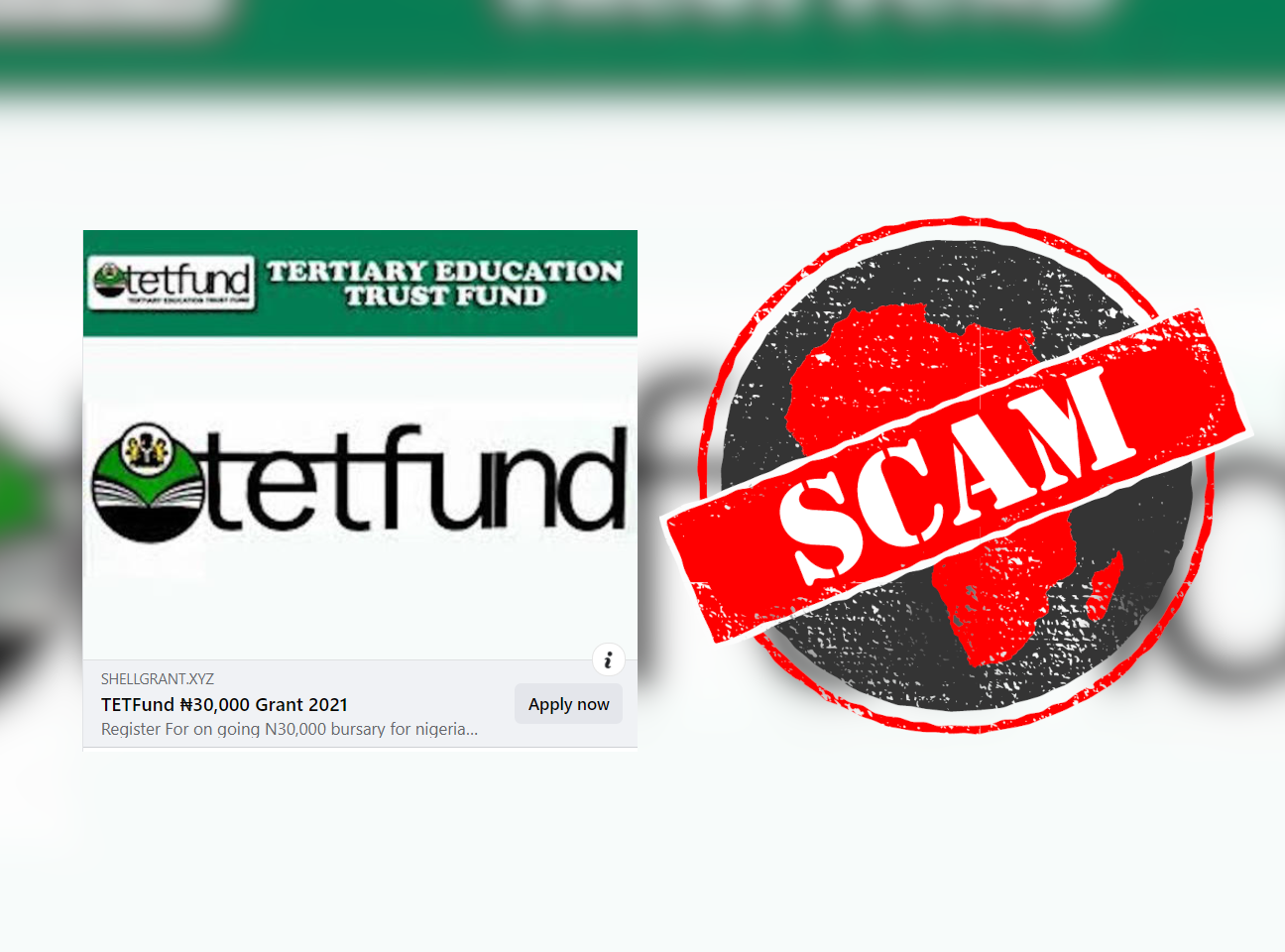A message circulating on Facebook and WhatsApp claims that Nigeria’s Tertiary Education Trust Fund (TETFund) is paying N30,000 to all of the country’s students.
“This is part of 2021 budget to support all Nigerian students. Registration Portal has been Opened and Payment has began,” the Whatsapp message reads.
The message links to a website where students can supposedly apply.
TETFund was established in 2011 by Nigeria’s federal government to manage education tax funds for government-owned tertiary education institutions.
But is the fund giving out N30,000 to students? We checked.

‘Please do not open the link’
The website’s landing page is an online form in which people are asked to enter their personal details such as name, address, phone number, email address, state of origin, date of birth and name of institution in order to apply.
Africa Check entered random details in the forms and, despite the information being wrong, were immediately taken to the next page, which displays the message “602223 Registration slots Left TETFUND GRANT”. We were then asked another series of questions, and told we had to share the link with five WhatsApp groups to get the money.
A thorough search of the TETFund website and social media accounts found no evidence of the N30,000 bursary.
But the fund has posted a screenshot of the message on its Instagram page, stamped “SCAM ALERT”. It includes a warning: “Our attention has been drawn to a fraudulent message currently circulating on Whatsapp platforms and Social Media.”
It adds: “We want to make it clear that TETFund has no relationship with the fraudulent message. The message claims TETFund is paying bursaries to students and directs you to a website that asks for personal information.
“PLEASE DO NOT OPEN THE LINK.”
The warning was also posted on Facebook.
The scam is an attempt to steal valuable personal information. To help protect yourself online, read our guide to Facebook scams and how to spot them.
Republish our content for free
For publishers: what to do if your post is rated false
A fact-checker has rated your Facebook or Instagram post as “false”, “altered”, “partly false” or “missing context”. This could have serious consequences. What do you do?
Click on our guide for the steps you should follow.
Publishers guideAfrica Check teams up with Facebook
Africa Check is a partner in Meta's third-party fact-checking programme to help stop the spread of false information on social media.
The content we rate as “false” will be downgraded on Facebook and Instagram. This means fewer people will see it.
You can also help identify false information on Facebook. This guide explains how.




Add new comment